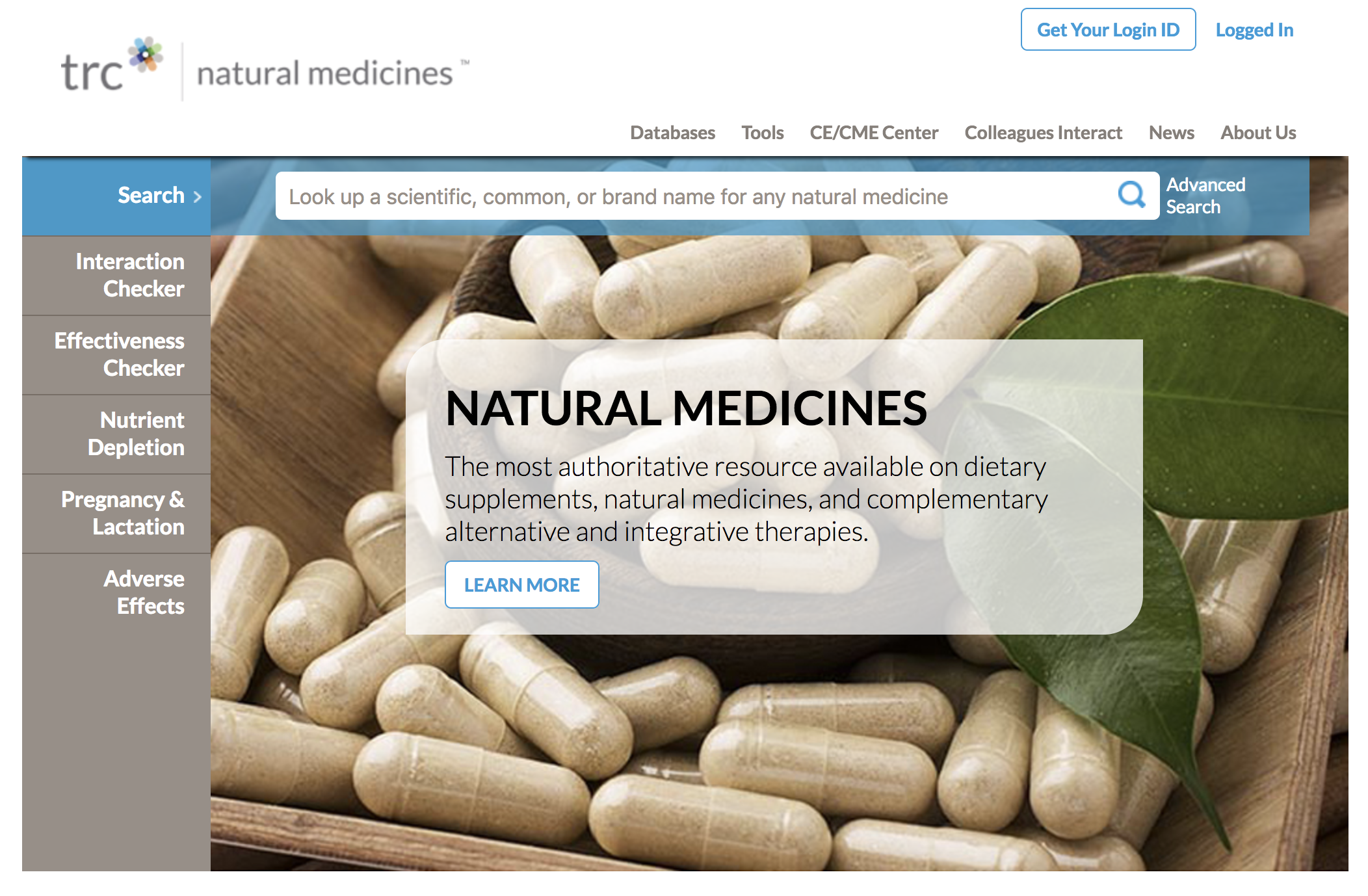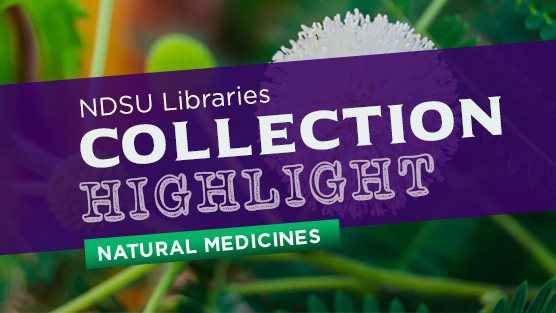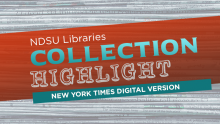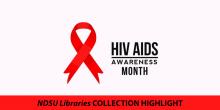September 2018
Collection Highlight: Natural Medicines
Are you a health sciences student that needs to separate the good natural treatments from the bad? Perhaps you’re a person who regularly looks to natural remedies for some of your health concerns? The Natural Medicines database, available through NDSU Libraries, can give you the information you need to make decisions regarding natural treatments.

Health information can seems a bit daunting, especially when we see reports of conflicting study conclusions—chocolate is good for you vs. chocolate is bad. Natural Medicines provides information about various foods and supplements in a concise and easy to understand way. For example, the monograph on Vitamin D breaks down the effectiveness into the categories “Effective,” “Likely Effective,” “Possibly Effective,” “Possibly Ineffective,” and “Insufficient Reliable Evidence to Rate,” with short paragraphs and thorough references to explain their conclusions. Safety is also presented clearly for adults, children, pregnant women, and lactating mothers. Further information about dosing, toxicology, interactions and pharmacokinetics is also listed.
Other tools and information in the database include an interaction checker for natural remedies and drugs, patient handouts, and a list of commercial products and a rating called the “Natural Medicine Brand Evidence-based Rating,” OR NMBER, which helps identify is a product is safe and effective. As an unbiased source that doesn’t take money or advertising or make endorsements, Natural Medicines is a good choice for reliable, evidence-based information on natural products.
For a direct link, NDSU users can access Natural Medicines here.
You can also contact your subject librarian with any of your questions or needs. Find yours here.





